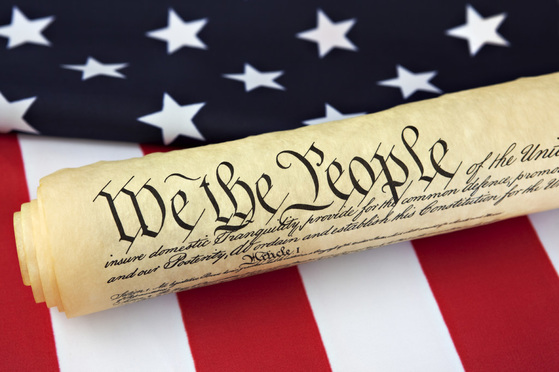A Forgotten First Amendment Hero
Jeffrey S. Trachtman writes: Steven Spielberg's “The Post” is a well-crafted, old-school newspaper drama with a timely message about the crucial role of a fearless free press. But it misses the chance to rediscover a forgotten First Amendment hero—the late Judge Murray I. Gurfein.
January 17, 2018 at 02:50 PM
4 minute read

Steven Spielberg's “The Post” is a well-crafted, old-school newspaper drama with a timely message about the crucial role of a fearless free press. But it misses the chance to rediscover a forgotten First Amendment hero—the late Judge Murray I. Gurfein.
The film recounts how the Washington Post joined the New York Times in defying the Nixon Justice Department over publication of the Pentagon Papers—leaked documents revealing decades of government deceit about the American folly in Vietnam. The case resulted in a landmark First Amendment precedent and set the stage, when the Watergate scandal soon broke, for the emboldened Post to help bring down a corrupt, paranoid, and vindictive president. The movie sparks hope that past might be prologue.
Hollywood docudramas inevitably fictionalize and simplify, so the filmmakers can hardly be blamed for skipping over some of the procedural twists and turns in the parallel injunctive actions against the two papers that converged in the historic June 1971 Supreme Court showdown. But it seems unfair that the movie bothers to call out Judge Gurfein for enjoining the Times without more fully describing his role in the drama—itself a compelling subplot.
Murray Gurfein was a tough New York litigator who had served as a rackets prosecutor, World War II intelligence officer, and assistant counsel at the Nuremburg war crime trials. He was nominated to the federal bench by President Nixon on the recommendation of Republican Senator Jacob Javits, confirmed by the Senate, and sworn in just days before the Pentagon Papers controversy exploded.
June 15, 1971 was actually Judge Gurfein's first day hearing cases. As the new kid on the block, he drew emergency motion duty—and barely had on his robes before being thrust into an epic face-off between lawyers for the government (arguing for censorship on national security grounds) and civil libertarians (pleading to preserve the rule against prior restraints on speech absent a “clear and present danger”).
As “The Post” recounts, Judge Gurfein, in an abundance of caution, did initially enter a TRO halting publication of the Times's Pentagon Papers series, a restraint that remained in place until the Supreme Court ruled. But this narrative obscures Judge Gurfein's well-earned footnote in First Amendment history.
After entering the TRO on June 15, Judge Gurfein held a further closed-door hearing on June 18 to consider extending it as a preliminary injunction. Initially hoping to broker a compromise, Judge Gurfein ultimately concluded that the Justice Department had failed to make its case. In a decision of striking bravery for a neophyte judge, he ruled against the government, issuing a ringing (and still relevant) endorsement of First Amendment freedoms that presaged Justice Hugo Black's famous concurring opinion two weeks later:
The security of the Nation is not at the ramparts alone. Security also lies in the value of our free institutions. A cantankerous press, an obstinate press, an ubiquitous press must be suffered by those in authority in order to preserve the even greater values of freedom of expression and the right of the people to know … .
These are troubled times. There is no greater safety valve for discontent and cynicism about the affairs of Government than freedom of expression in any form. This has been the genius of our institutions throughout our history. It is one of the marked traits of our national life that distinguish us from other nations under different forms of government.
Finding that the government had established no harm in publishing the largely historical information beyond “the general embarrassment that flows from any security breach,” Judge Gurfein denied the preliminary injunction and dissolved the TRO—staying his ruling only to permit the government to appeal.
The movie does Judge Gurfein a disservice by mentioning only the TRO and omitting his bold First Amendment ruling. Judge Gurfein was not the only judge to do the right thing here, but he led the way—standing up, in his first week on the job, to the president who had just appointed him. It was an act of political courage that still inspires today, with our independent judiciary as besieged as our free press.
So munch your popcorn and cheer Kay Graham and Ben Bradlee, but don't forget the bit players who also deserve applause—including a lone rookie judge with the intellectual honesty and political guts to say “no” to authoritarian power. We need more like him today.
Jeffrey S. Trachtman is a partner at Kramer Levin Naftalis & Frankel LLP.
This content has been archived. It is available through our partners, LexisNexis® and Bloomberg Law.
To view this content, please continue to their sites.
Not a Lexis Subscriber?
Subscribe Now
Not a Bloomberg Law Subscriber?
Subscribe Now
NOT FOR REPRINT
© 2025 ALM Global, LLC, All Rights Reserved. Request academic re-use from www.copyright.com. All other uses, submit a request to [email protected]. For more information visit Asset & Logo Licensing.
You Might Like
View All
Neighboring States Have Either Passed or Proposed Climate Superfund Laws—Is Pennsylvania Next?
7 minute read

Relaxing Penalties on Discovery Noncompliance Allows Criminal Cases to Get Decided on Merit
5 minute read
Trending Stories
- 1Decision of the Day: Judge Dismisses Defamation Suit by New York Philharmonic Oboist Accused of Sexual Misconduct
- 2California Court Denies Apple's Motion to Strike Allegations in Gender Bias Class Action
- 3US DOJ Threatens to Prosecute Local Officials Who Don't Aid Immigration Enforcement
- 4Kirkland Is Entering a New Market. Will Its Rates Get a Warm Welcome?
- 5African Law Firm Investigated Over ‘AI-Generated’ Case References
Who Got The Work
J. Brugh Lower of Gibbons has entered an appearance for industrial equipment supplier Devco Corporation in a pending trademark infringement lawsuit. The suit, accusing the defendant of selling knock-off Graco products, was filed Dec. 18 in New Jersey District Court by Rivkin Radler on behalf of Graco Inc. and Graco Minnesota. The case, assigned to U.S. District Judge Zahid N. Quraishi, is 3:24-cv-11294, Graco Inc. et al v. Devco Corporation.
Who Got The Work
Rebecca Maller-Stein and Kent A. Yalowitz of Arnold & Porter Kaye Scholer have entered their appearances for Hanaco Venture Capital and its executives, Lior Prosor and David Frankel, in a pending securities lawsuit. The action, filed on Dec. 24 in New York Southern District Court by Zell, Aron & Co. on behalf of Goldeneye Advisors, accuses the defendants of negligently and fraudulently managing the plaintiff's $1 million investment. The case, assigned to U.S. District Judge Vernon S. Broderick, is 1:24-cv-09918, Goldeneye Advisors, LLC v. Hanaco Venture Capital, Ltd. et al.
Who Got The Work
Attorneys from A&O Shearman has stepped in as defense counsel for Toronto-Dominion Bank and other defendants in a pending securities class action. The suit, filed Dec. 11 in New York Southern District Court by Bleichmar Fonti & Auld, accuses the defendants of concealing the bank's 'pervasive' deficiencies in regards to its compliance with the Bank Secrecy Act and the quality of its anti-money laundering controls. The case, assigned to U.S. District Judge Arun Subramanian, is 1:24-cv-09445, Gonzalez v. The Toronto-Dominion Bank et al.
Who Got The Work
Crown Castle International, a Pennsylvania company providing shared communications infrastructure, has turned to Luke D. Wolf of Gordon Rees Scully Mansukhani to fend off a pending breach-of-contract lawsuit. The court action, filed Nov. 25 in Michigan Eastern District Court by Hooper Hathaway PC on behalf of The Town Residences LLC, accuses Crown Castle of failing to transfer approximately $30,000 in utility payments from T-Mobile in breach of a roof-top lease and assignment agreement. The case, assigned to U.S. District Judge Susan K. Declercq, is 2:24-cv-13131, The Town Residences LLC v. T-Mobile US, Inc. et al.
Who Got The Work
Wilfred P. Coronato and Daniel M. Schwartz of McCarter & English have stepped in as defense counsel to Electrolux Home Products Inc. in a pending product liability lawsuit. The court action, filed Nov. 26 in New York Eastern District Court by Poulos Lopiccolo PC and Nagel Rice LLP on behalf of David Stern, alleges that the defendant's refrigerators’ drawers and shelving repeatedly break and fall apart within months after purchase. The case, assigned to U.S. District Judge Joan M. Azrack, is 2:24-cv-08204, Stern v. Electrolux Home Products, Inc.
Featured Firms
Law Offices of Gary Martin Hays & Associates, P.C.
(470) 294-1674
Law Offices of Mark E. Salomone
(857) 444-6468
Smith & Hassler
(713) 739-1250






